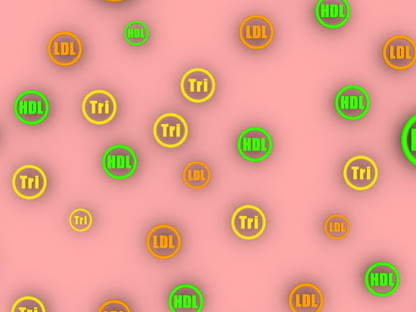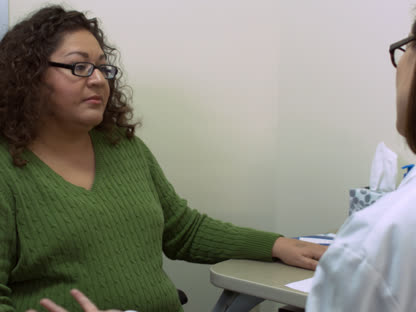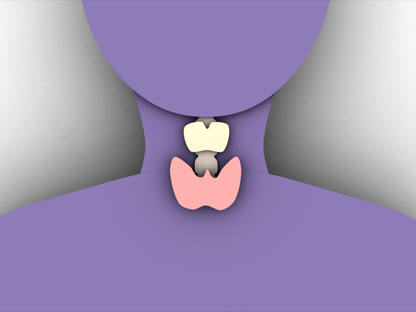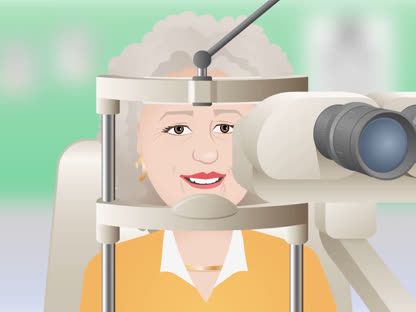Health Screening: Finding Health Problems Early
Overview
Why is it important to find health problems early?
Screening tests help your doctor look for certain diseases before any symptoms appear. Often, the earlier a disease is diagnosed, the more likely it is that it can be cured or successfully managed. When you treat a disease early, you may be able to prevent or delay problems from the disease.
Regular screening tests and checkups can help you stay healthy. Talk with your doctor whenever you have concerns about your health.
How do you decide when to get a screening test?
When and how often you get screening tests may depend on your age, your sex, your health status, your risk factors, and the cost of testing. In some cases, testing is done as part of a routine checkup.
Your doctor may suggest screening tests based on expert guidelines. Sometimes different expert panels make different recommendations. In these situations, talk with your doctor to decide which guidelines best meet your health needs.
You also may need some screening tests earlier or more often if:
- You have a higher risk for a certain disease, such as diabetes, heart disease, or colon cancer.
- You have a long-term health problem, such as diabetes.
When you are thinking about getting a screening test, talk with your doctor. Find out about the disease, what the test is like, how the test may help you or hurt you, and how much the test costs. You may also want to ask what further testing and follow-up will be needed if a screening test result shows a possible problem.
Ask your doctor about the limits of the test and treatment. For example:
- Ask your doctor how likely it is that the test would miss a disease (false negative, Opens dialog), show something that looks like you have a disease when you don't (false positive, Opens dialog), or find a disease that will never cause a problem.
- Ask your doctor about the treatment for the disease that the test looks for. There may be no treatment that helps with symptoms or helps you live longer. In this case, you may decide that you don't want the screening test.
Also think about what you would do if a test shows that you have the disease. For example, if you are going to be tested for osteoporosis, are you willing to take medicine or make lifestyle changes if the test shows that you have it?
Screening, Birth to 23 Months
All states require newborn screening, although the tests required vary from state to state. These tests can help find serious problems that could affect your baby's long-term health. Your doctor will check your baby's vision, hearing, height, and weight, among other things.
Learn more
- Bilirubin Test
- Congenital Heart Disease in Children
- Developmental Problems: Testing
- Galactosemia Test
- Growth and Development, Ages 1 to 12 Months
- Growth and Development, Ages 12 to 24 Months
- Growth and Development, Newborn
- Iron Deficiency Anemia
- Lead Poisoning Screening
- Phenylketonuria (PKU) Test
- Regular Checkup for a Child
- Screening for Hearing Problems
- Sickle Cell Test
- Thyroid Hormone Tests
- Tuberculosis (TB) Screening
- Vision Screening and Eye Exams for Children and Teens
- Well-Child Visits
Screening, 2 to 12 Years
Many types of screening may take place at routine visits when your child is 2- to 12-years old. These tests include checks for developmental and behavioral problems. Your doctor may also do vision and hearing checks.
Learn more
- Blood Pressure Screening
- Developmental Problems: Testing
- Growth and Development, Ages 2 to 5 Years
- Growth and Development, Ages 6 to 10 Years
- Growth and Development, Ages 11 to 14 Years
- Lead Poisoning Screening
- Screening for Hearing Problems
- Screening for Weight Problems
- Tuberculosis (TB) Screening
- Type 2 Diabetes: Screening for Children
- Vision Screening and Eye Exams for Children and Teens
- Well-Child Visits
- When to Have a Cholesterol Test
Screening, 13 to 18 Years
Screening for your 13- to 18-year-old child may include checks for school and behavioral concerns, blood pressure, and hearing. Checks for cholesterol, type 2 diabetes, and tuberculosis may also be done.
Learn more
- Blood Pressure Screening
- Depression Screening
- Developmental Problems: Testing
- Growth and Development, Ages 11 to 14 Years
- Growth and Development, Ages 15 to 18 Years
- HIV Screening
- Lead Poisoning Screening
- Screening for Hearing Problems
- Screening for Weight Problems
- Sexually Transmitted Infection Screening
- Teen Alcohol and Drug Use
- Tuberculosis (TB) Screening
- Type 2 Diabetes: Screening for Children
- Vision Screening and Eye Exams for Children and Teens
- Well-Child Visits
- When to Have a Cholesterol Test
Screening, Adults
Adults may have a number of screening tests, such as tests for heart attack and stroke risk and certain cancers. Your doctor can help you determine the tests you may need and how often to have them.
Learn more
- Abdominal Aortic Aneurysm Screening
- Blood Pressure Screening
- Breast Cancer Screening
- Cervical Cancer Screening
- Colorectal Cancer Screening
- Depression Screening
- Glaucoma Screening
- Guidelines for Lung Cancer Screening
- Heart Attack and Stroke Risk Screening
- HIV Screening
- Osteoporosis Screening
- Prostate Cancer Screening
- Screening for Hearing Problems
- Screening for Weight Problems
- Sexually Transmitted Infection Screening
- Skin Cancer Screening
- Thyroid Screening Recommendations
- Tuberculosis (TB) Screening
- Type 2 Diabetes: Screening for Adults
- Vision Screening and Eye Exams for Adults
- When to Have a Cholesterol Test
Watch
-
5 Things to Know About Cervical Cancer Screening, Opens dialog

-
Cholesterol Test: Understanding the Test, Opens dialog

-
Colon Cancer: Screening Tests and What the Results Mean, Opens dialog

-
Heart Attack and Stroke: A Woman's Risk, Opens dialog

-
HIV: Understanding the Test, Opens dialog

-
Mammogram: What to Expect, Opens dialog

-
Preventing Falls: Get an Eye Exam, Opens dialog

-
Thyroid Blood Test: Understanding the Test, Opens dialog

-
Why Get Screened for Glaucoma?, Opens dialog

Related Information
Credits
Current as of: October 24, 2024
Author: Ignite Healthwise, LLC Staff
Clinical Review Board
All Ignite Healthwise, LLC education is reviewed by a team that includes physicians, nurses, advanced practitioners, registered dieticians, and other healthcare professionals.
Current as of: October 24, 2024
Author: Ignite Healthwise, LLC Staff
Clinical Review Board
All Ignite Healthwise, LLC education is reviewed by a team that includes physicians, nurses, advanced practitioners, registered dieticians, and other healthcare professionals.


